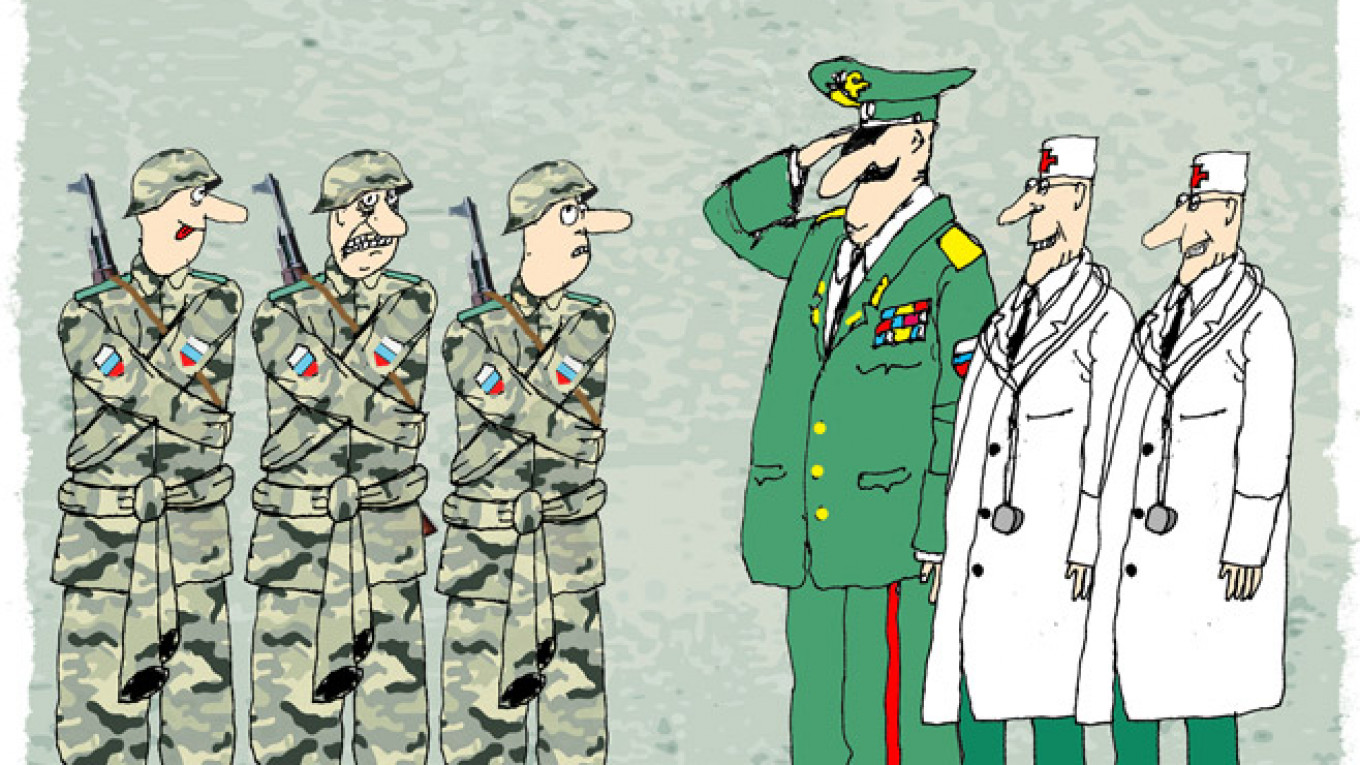Like many others in the Armenian diaspora, I have been shaken by the news out of the Armenian city of Gyumri where six members of the Avetisyan family were killed. A conscript from a nearby Russian military base had confessed to the killings and his gun and belongings were found in the Avetisyans' house.
I can only hope and pray that little Seryozha Avetisyan — who suffered a wound in the course of this homicide and remains in grave condition — overcomes the odds and lives on to fulfill the dream that I am sure his parents nurtured for him when he was born six months ago.
At this stage, the information available in the public domain doesn't allow us to ascertain what might have caused the suspect — who reportedly had been "on the radar" of Russian law-enforcement and his brother had been convicted of murder — to commit such an atrocity. When apprehended, the suspect could give no coherent explanation as to what prompted him to shoot and hack seven people, ranging in age from six months to 53 years.
We do not know whether the suspect — who had reportedly tried to desert once before — had some underlying condition before being conscripted or that appeared during the course of his service that may have caused him to commit such a heinous crime. One way or another, no sane person would have stabbed a small child with a bayonet, which is what the suspect allegedly did.
Unfortunately, this is not the first case of a soldier going on a killing spree when absent without leave within or outside the former Soviet Union.
While a defense journalist at The Moscow Times, I wrote more than once about uniformed killers, including one mentally unstable sailor who had locked himself up in a nuclear submarine after shooting fellow comrades-in-arms.
Some of these killings would have never been committed if the Russian enlistment offices and the medical commissions assigned to these offices did a thorough job of screening all conscripts. Others would have not happened if violent hazing of conscripts had been not tolerated.
Russian media have reported on how individuals with health issues or with expunged criminal records would be served call-up notices just because enlistment officers needed to fulfill conscription plans assigned by the General Staff.
The Russian military and border guards should be commended for quickly tracking down the suspect before he could cross into Turkey and placing him into custody. However, it took the Defense Ministry team only a few days to conduct an investigation and announce that all those guilty have been identified.? As disappointing are some of the proposals on how to deal with the bigger problem, as they see it.
For instance, one ministry representative has stated the armed forces might stop sending conscripts to Russia's military bases abroad because of the incident.
Should not the goal be to prevent soldiers from murdering people in general rather than just people living in countries which host Russian troops? If someone is prone to go on a killing spree, then he should not be conscripted at all.
Russian laws bar Russian authorities from handing Russian citizens to foreign governments for prosecution, but they also provide for life in prison for those found guilty of committing murders of this scale and cruelty. In my opinion, justice will be served, only, if found guilty, the suspect is sentenced to life in prison without parole.
Armenians' sympathies with Russia are well-known. In fact, the name of the surviving boy — Seryozha — attests to it. One legend — that I have read in Armenian literature — it that grateful Armenians would name their children after Russian soldiers who fought on behalf of the Russian empire to wrest control of parts of historic Armenia from Persia and the Ottoman empire — that had oppressed their Armenian subjects.
The soldiers would give their diminutive names when asked by Armenians, and, hence there appeared numerous Seryozhas, Vanyas and Kolyas in Armenia.
It is my strong hope that this horrible tragedy will not affect the relations between Armenia and Russia, but it is my even stronger hope that the Russian response will not be limited to prosecution of the alleged murderer. Killing sprees by soldiers across the world demonstrate that even fully professional armies sometimes fail to weed out potentially dangerous individuals from their ranks.
But I still think there are steps that generals can take to reduce occurrences of uniformed violence even if fully eliminating such violence might prove to be a mission impossible.
These steps include rigorous screening of conscripts and monitoring of active-duty servicemen to detect dangerous disorders as well as zero tolerance for violent hazing.
Simon Saradzhyan is a researcher at Harvard University's Belfer Center for Science and International Affairs. Follow him on twitter @saradzhyan.
A Message from The Moscow Times:
Dear readers,
We are facing unprecedented challenges. Russia's Prosecutor General's Office has designated The Moscow Times as an "undesirable" organization, criminalizing our work and putting our staff at risk of prosecution. This follows our earlier unjust labeling as a "foreign agent."
These actions are direct attempts to silence independent journalism in Russia. The authorities claim our work "discredits the decisions of the Russian leadership." We see things differently: we strive to provide accurate, unbiased reporting on Russia.
We, the journalists of The Moscow Times, refuse to be silenced. But to continue our work, we need your help.
Your support, no matter how small, makes a world of difference. If you can, please support us monthly starting from just $2. It's quick to set up, and every contribution makes a significant impact.
By supporting The Moscow Times, you're defending open, independent journalism in the face of repression. Thank you for standing with us.
Remind me later.


